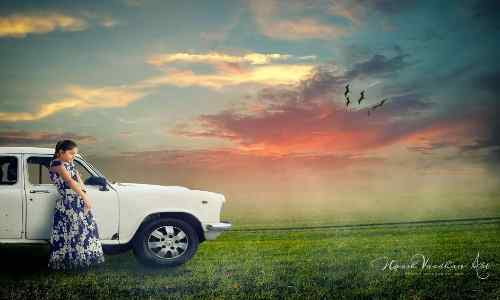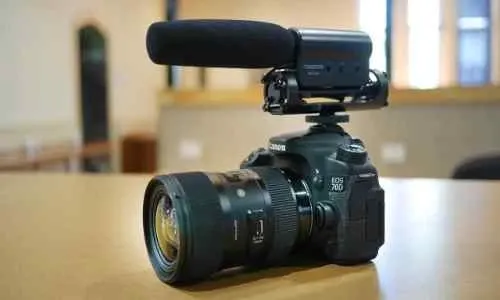



 Tech & IT
Tech & IT
 Business
Business
 Coding & Developer
Coding & Developer
 Finance & Accounting
Finance & Accounting
 Academics
Academics
 Office Applications
Office Applications
 Art & Design
Art & Design
 Marketing
Marketing
 Health & Wellness
Health & Wellness
 Sounds & Music
Sounds & Music
 Lifestyle
Lifestyle
 Photography
Photography
More Learnfly
Business Solution Become an Instructor"DSLR (Digital Single-Lens Reflex) cameras are versatile tools in the world of photography and videography. Combining advanced optics and digital technology, DSLRs offer photographers and filmmakers precision, creative control, and the ability to capture high-quality images and videos with interchangeable lenses, making them indispensable for enthusiasts and professionals alike."












Learn more topics in various categories at one place. Explore unlimited courses in other categories and up-skill yourself today.

 Jazeb Akram
Jazeb Akram 4.2 771149 Beginner Level

 John Hedengren
John Hedengren 4.1 569053 All Level

 Ranjan Pandey
Ranjan Pandey 4.1 346718 All Level

 Muhammad Ahsan Pervaiz
Muhammad Ahsan Pervaiz 4.2 101326 All Level

 Pieter Vliegenthart
Pieter Vliegenthart 4.6 100908 All Level

 Jerome P.
Jerome P. 4.8 100866 All Level

 Senol Atac
Senol Atac 4.9 100081 All Level

 Vikas Munjal
Vikas Munjal 4.8 100057 Beginner Level

 Avinash A
Avinash A 4.8 100000 All Level

 HARSH VARDHAN Arts
HARSH VARDHAN Arts40 Lectures Beginner Level

 HARSH VARDHAN Arts
HARSH VARDHAN Arts31 Lectures Beginner Level

 Daniela Lambova
Daniela Lambova8 Lectures Beginner Level

 Daniela Lambova
Daniela Lambova11 Lectures Beginner Level

 Matthew Storer
Matthew Storer44 Lectures Beginner Level

 Matthew Storer
Matthew Storer60 Lectures Beginner Level
DSLR stands for Digital Single-Lens Reflex, referring to a type of digital camera that uses a mirror mechanism to direct light from the camera's lens to an optical viewfinder. DSLRs are known for their versatility, interchangeable lenses, and the ability to capture high-quality still images and videos.
DSLRs are important for their capability to provide high-quality images with manual control over settings. They offer versatility through interchangeable lenses, making them suitable for various photography styles, including portraits, landscapes, and action photography. Additionally, DSLRs often have larger sensors, allowing for better performance in low-light conditions.
Common features include a mirror mechanism that reflects light to an optical viewfinder, a large image sensor for high-quality images, manual exposure controls, interchangeable lenses, and the ability to capture still images and videos. DSLRs typically provide a range of shooting modes to accommodate different skill levels.
Learning DSLR photography involves understanding the basic principles of exposure, composition, and camera settings. Online tutorials, photography courses, and hands-on practice with a DSLR help individuals become familiar with manual controls, focusing techniques, and creative shooting. Experimenting with different lenses and exploring various shooting scenarios contribute to skill development.
While DSLRs offer advanced features and image quality, they may not be necessary for every photography enthusiast, especially beginners. Many mirrorless cameras and advanced compact cameras provide excellent image quality and manual controls in a more compact form. The choice between DSLR and other camera types depends on individual preferences, budget, and specific photography needs.





